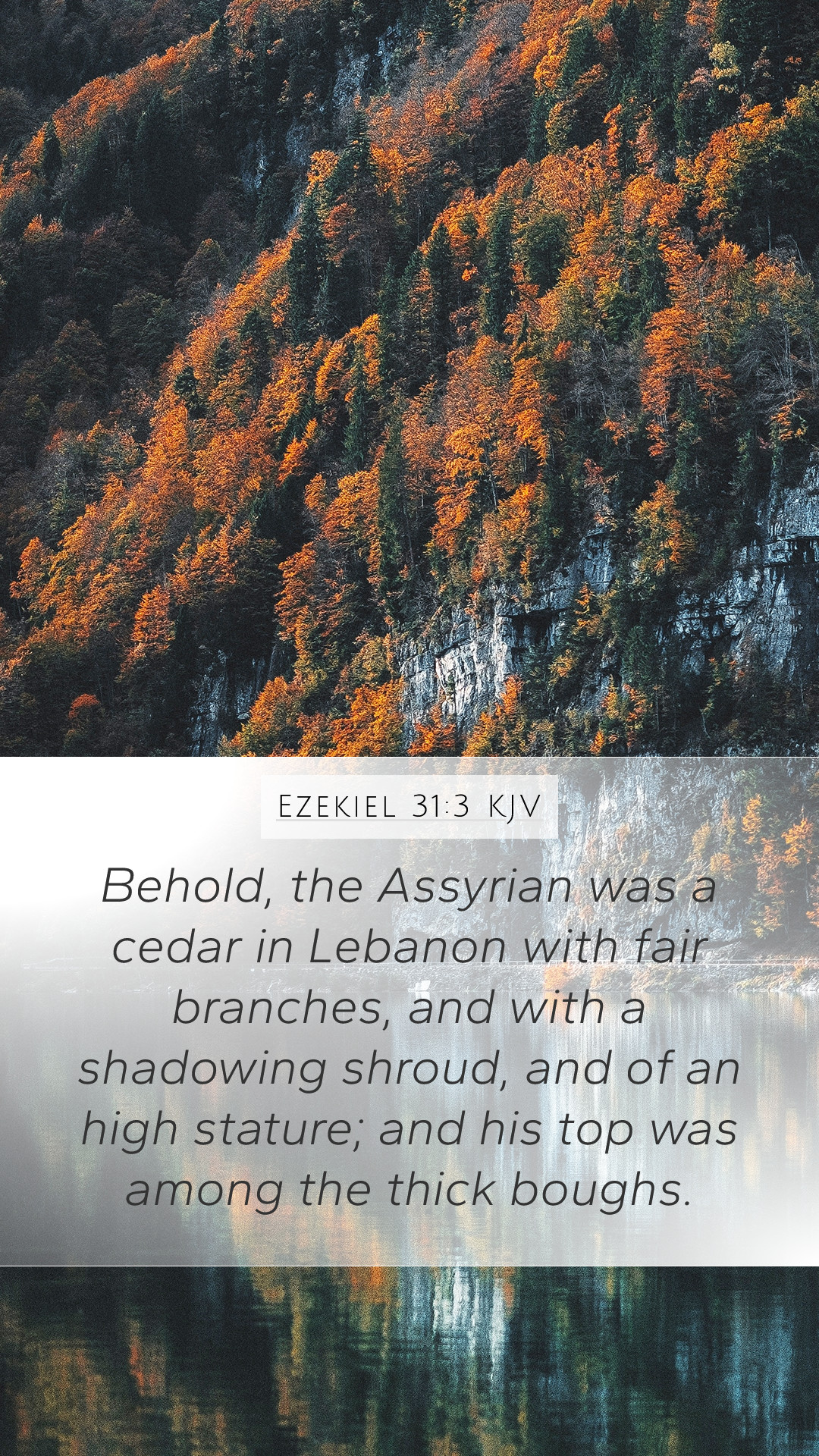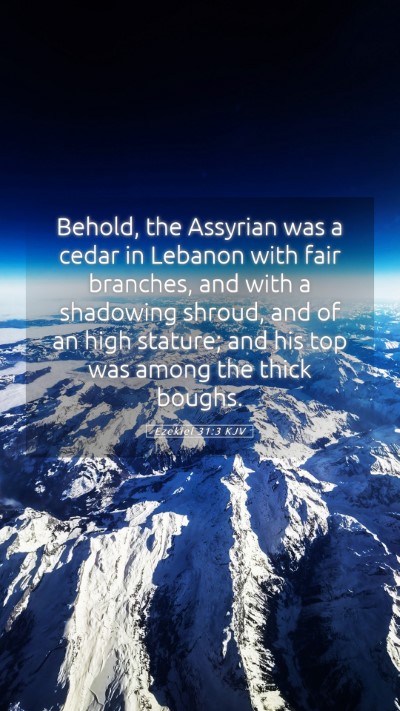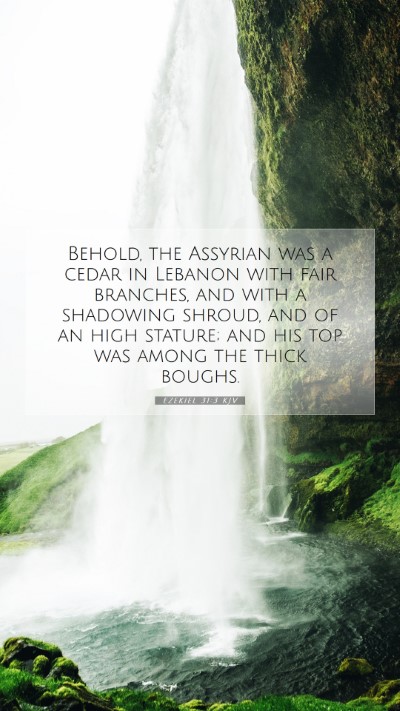Ezekiel 31:3 - Understanding the Verse
Ezekiel 31:3 states: "Behold, the Assyrian was a cedar in Lebanon with fair branches, and with a shadowy grove, and of high stature; and his top was among the thick boughs."
Bible Verse Meanings
This verse is commonly interpreted as a metaphorical depiction of the power and grandeur of the Assyrian Empire, likened to a mighty cedar tree. The imagery used captures several elements of its nature and influence.
Biblical Exegesis
- Symbolism of the Cedar: The cedar tree is known for its strength and durability, often used in ancient construction, symbolizing the might of the Assyrian kingdom.
- High Stature: This describes the notable position of Assyria among nations, not only as a leader but also as a figure of pride and power.
- Branching Influence: The reference to “fair branches” and a “shadowy grove” suggests that the empire provided protection and perhaps dominion over surrounding nations, creating a sense of security for its vassals.
Bible Verse Interpretations
Commentators like Matthew Henry view this verse as an illustration of the temporal glory that ultimately leads to downfall. Henry notes the transitory nature of power and how it eventually yields to God's judgment.
Albert Barnes adds that this imagery serves to remind the Israelites of their own vulnerability amidst the surrounding geopolitical turmoil and the overreach of empires.
In contrast, Adam Clarke emphasizes God's sovereignty over nations, suggesting that despite Assyria's power, it falls under divine authority and eventual judgment.
Key Themes in Ezekiel 31:3
- The Majesty of Nations: The depiction of Assyria reflects on the might of nations in contrast to their eventual fate.
- Divine Sovereignty: The text implies that despite human grandeur, God ultimately governs the rise and fall of empires.
- Warning to Israel: For the Israelites, this serves as a reminder not to trust in the might of foreign powers but in God alone.
Application of Bible Verses to Daily Life
Understanding Ezekiel 31:3 invites reflection on the nature of power and influence in our own lives. We are called to recognize that while we may seek positions of authority or success, true security and purpose come from our relationship with God.
This verse prompts believers to engage in Bible study groups, focusing on how biblical lessons apply to personal and communal living, drawing parallels between historical empires and modern challenges.
Bible Cross References
- Ezekiel 17:22-24: The parable of the cedar tree and its branches illustrates God's control over growth and decline.
- Isaiah 2:12: This emphasizes pride and the day of the Lord, paralleling themes of divine judgment.
- Daniel 4:20-22: Nebuchadnezzar’s dream reflects the idea of pride leading to downfall, echoing Ezekiel's themes.
Conclusion
In summary, Ezekiel 31:3 serves as a poignant reminder of the transient nature of human power and the overarching sovereignty of God. The interpretations derived from public domain commentaries enrich our understanding of Scripture, offering insights into the historical context and spiritual applications for today.
Whether engaging in online Bible study or group discussions, this verse encourages believers to contemplate the true source of strength and protection, reaffirming the need for reliance on God above worldly powers.


